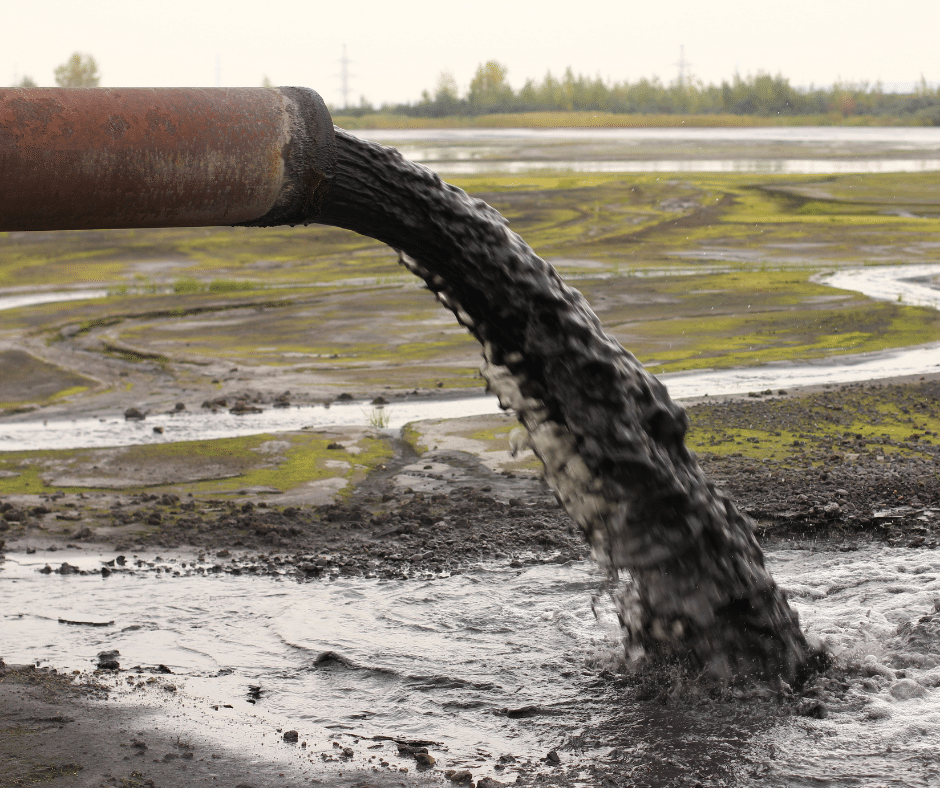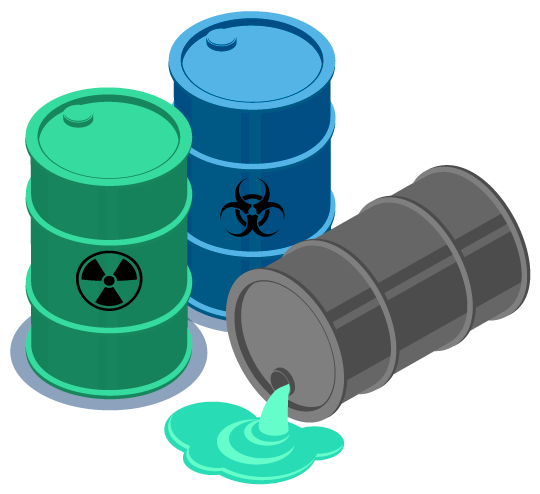Industrial Wastewater Treatment: Custom-made Solutions for Facility Wastewater Challenges
Industrial Wastewater Treatment: Custom-made Solutions for Facility Wastewater Challenges
Blog Article
Comprehending the Comprehensive Refine of Fluid Garbage Disposal: Finest Practices and Environmental Impact Considerations
The management of fluid garbage disposal is a diverse problem that requires a comprehensive understanding of numerous best techniques and their linked environmental influences. From the sorts of fluid waste generated to the techniques used for collection, therapy, and last disposal, each step plays a vital role in safeguarding ecological communities and public wellness. As regulative standards advance and modern technology advancements, the conversation around these procedures ends up being increasingly significant. What ramifications do these changes hold for future sustainability initiatives, and exactly how can stakeholders ensure that they are appropriately attended to?
Sorts Of Fluid Waste
Understanding the different kinds of liquid waste is necessary for effective administration and disposal techniques. Liquid waste can be extensively classified right into several types, each calling for unique handling and therapy methods.
Industrial fluid waste usually consists of harmful materials, including heavy metals, solvents, and chemicals, produced during producing procedures. These wastes necessitate rigorous regulatory compliance to secure human wellness and the setting. Domestic liquid waste primarily refers to wastewater created from households, including sewer and greywater, which, although less hazardous, can still posture considerable risks if poorly handled.
Agricultural liquid waste, including runoff from ranches, often has fertilizers and pesticides that can lead to environmental degradation if not treated appropriately. Medical liquid waste, generated from healthcare facilities, consists of infected liquids such as physical fluids and chemicals, requiring specialized disposal methods to avoid infection and environmental contamination.
Lastly, oil and oil waste, commonly created by restaurants and vehicle sectors, can create severe blockages in sewer systems if not taken care of correctly. Recognizing these groups helps with targeted techniques for treatment, conformity with policies, and reliable disposal techniques, ultimately advertising ecological sustainability and public wellness security.

Collection Techniques
Effective collection approaches are crucial for the proper monitoring of fluid waste, guaranteeing that it is gathered securely and successfully before therapy or disposal. Various strategies are utilized depending on the sort of liquid waste created, the volume, and the details attributes of the waste.
One typical method is making use of devoted collection containers or sumps, which are developed to record liquid waste at the resource. These systems usually integrate pumps that facilitate the transfer of waste to bigger storage space containers or treatment centers. Additionally, mobile collection systems geared up with vacuum cleaner technology are used in situations where waste is produced periodically or in hard-to-reach places.
For commercial settings, closed-loop systems can efficiently lessen spills and leakages, enabling the recuperation and reuse of liquid waste. It is also crucial to train personnel on proper collection protocols to minimize risks connected with hazardous compounds.
Additionally, carrying out normal maintenance timetables for collection tools guarantees ideal efficiency and safety and security. The integration of sophisticated tracking systems can boost collection performance by providing real-time data on waste levels and prospective threats. Overall, effective collection methods are foundational to sustainable fluid waste management practices.
Treatment Processes
Treatment processes play an important function in the administration of fluid waste, changing possibly harmful materials right into recyclable resources or risk-free effluents - liquid waste disposal. These processes can be broadly classified right into physical, chemical, and organic approaches, each customized to attend to certain impurities existing in the waste stream
Physical treatment techniques, such as sedimentation and filtering, work by removing suspended solids and particulate issue. These methods are typically the initial step in the treatment chain, successfully reducing the load on succeeding procedures. Chemical treatments include using reagents to neutralize harmful materials, speed up heavy steels, or oxidize organic pollutants, therefore improving the safety of the effluent.
Organic treatment processes, consisting of triggered sludge systems and anaerobic food digestion, profit from the all-natural capabilities of bacteria to degrade raw material. These methods are especially effective for wastewater having naturally degradable contaminants. Advanced treatment innovations, such as membrane filtering and progressed oxidation procedures, are significantly used to accomplish greater degrees of purification.
Integrating a mix of these treatment approaches not just ensures compliance with governing requirements yet also promotes ecological sustainability by recovering useful sources from liquid waste.
Disposal Options
Exactly how can companies ensure the risk-free and liable disposal of liquid waste? Effective disposal alternatives are critical for securing public health and wellness and the atmosphere. The main approaches include land treatment, disposal, and incineration complied with by discharge right into community wastewater systems.
Land disposal entails the careful control of fluid waste in assigned garbage dumps, making sure that it does not leach into surrounding dirt or water. Incineration, on the various other hand, topics fluid waste to heats, converting it into ash and gases, which require proper filtration to reduce discharges. This technique appropriates for contaminateds materials that can not be dealt with with standard means.
In instances where fluid waste can be dealt with, companies might go with organic or chemical treatment procedures to reduce the effects of dangerous elements before discharging the dealt with effluent into community systems. This course normally straightens with regulative needs, making certain that the effluent satisfies security standards.
Ultimately, companies have to perform detailed analyses of each disposal choice to determine its viability, thinking about factors such as waste make-up, regulative conformity, and potential dangers to health and wellness and the setting. By picking proper disposal approaches, organizations can add to an accountable waste management approach.
Ecological Impact
The ecological influence of fluid waste disposal is an essential factor to consider for organizations seeking to decrease their ecological footprint. In addition, the discharge of neglected or inadequately treated waste into surface area waters can result in eutrophication, leading to oxygen deficiency and the subsequent death of fish and other organisms.

To minimize these influences, organizations have to embrace finest practices such as applying rigorous waste treatment processes, promoting recycling and reuse, and sticking to regulative standards. By taking a positive technique to fluid waste management, entities can click here to read dramatically reduce their ecological footprint while supporting lasting advancement goals. Inevitably, a thorough understanding of the ecological influences connected with liquid waste disposal is crucial for notified decision-making and accountable stewardship of all-natural sources.
Conclusion
Effective management of fluid waste is critical for securing environmental integrity and public wellness. By adopting finest methods in therapy, collection, and disposal, along with adherence to regulatory requirements, the potential for damaging contamination of ecosystems can be dramatically lowered. Continuous developments in innovation and processes add to lasting waste management efforts. Ultimately, a detailed understanding of fluid waste disposal not only minimizes ecological impacts but likewise promotes a commitment to liable resource management and environmental stewardship.
The monitoring continue reading this of liquid waste disposal is a multifaceted concern that calls for a comprehensive understanding of various finest techniques and their associated ecological effects. From the kinds of fluid waste produced to the techniques employed for collection, treatment, and last disposal, each action plays a crucial role in securing communities and public health and wellness.The environmental influence of liquid waste disposal is an important factor to consider for companies looking for to minimize their ecological footprint. Ultimately, a comprehensive understanding of the ecological influences linked with fluid waste disposal is vital for informed decision-making and liable stewardship of all-natural sources.
Inevitably, a comprehensive understanding of liquid waste disposal not only minimizes environmental impacts however additionally promotes a commitment to liable resource management and ecological stewardship.
Report this page